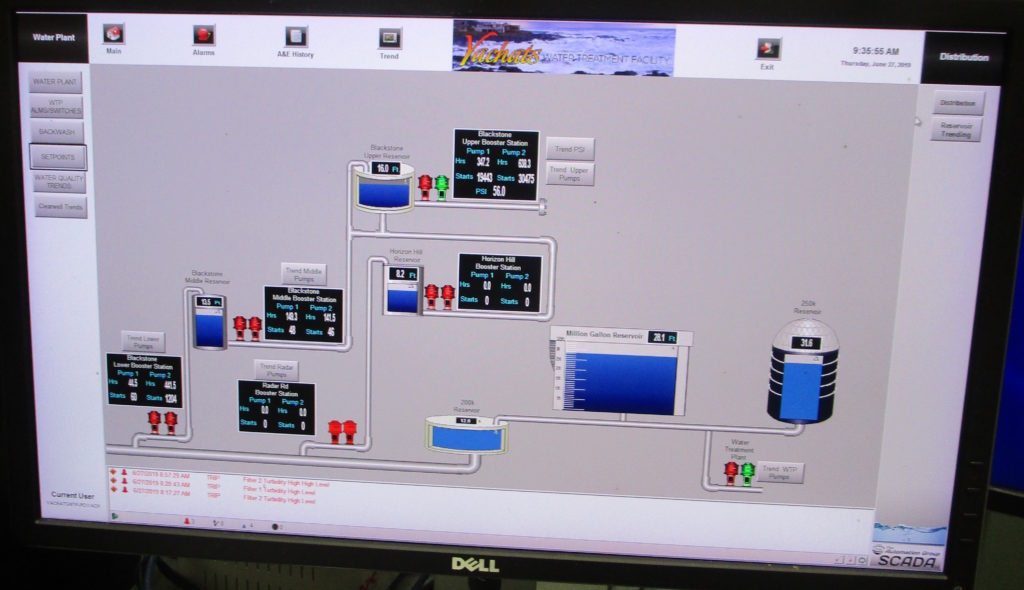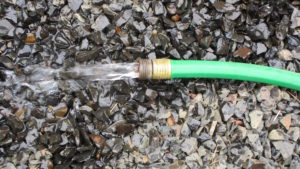
By QUINTON SMITH/YachatsNews.com
The city of Yachats has taken another step in a two-year journey to generate more money for water projects – and correcting issues with some businesses who use large amounts of water.
The Yachats City Council last week unanimously approved a new method of calculating water rates by moving to a charge based on the size of a homeowner’s or business’s water meter.
But the new basic rate – which at one time were intended to take effect July 1 – won’t go into effect until Jan. 1 in order to alert businesses that are most affected.
And adjusting charges based on water use won’t be considered for at least another eight months, after more data is gathered by the Oregon Association of Water Utilities on the impact of consumption-based charges.
The new base rate – and possible new consumption-based rates next year – are designed to generate $200,000 a year for capital water projects and correct under-charges to five large users and over-charges to three large users that has been going on since 2016.
The city currently charges 858 customers with a 5/8th inch meter a base rate of $48.24 a month for two units (1,496 gallons) of water. That rate remains the same Jan. 1.
Those rates for the smaller meters go up slightly – from the current $5.37 to $6 – for each unit of water used above the first two units.
The rate structure and changes are complicated and involves two major issues.
The first involves a council decision in 2015 to have residential users partially subsidize Yachats’ largest water users. That was a tradeoff to ease the impact on large users like motels and recognize they contribute the bulk of the city government’s revenue through lodging taxes.
That decision also brought hundreds of second homes, whose part-time occupants use much less water, into the same rate system as year-round residents, thus providing more revenue to the city.

The second issue is a mistaken rate adjustment in February 2016 involving eight large water users that has over-charged three and under-charged five. Under current rates, that mistake is costing the city about $1,000 a month, according to figures from the Public Works and Streets Commission.
The City Council approved the $24,000 rate study last year to see how to best charge for water and to provide $200,000 in the budget for maintenance and repairs. But it also wanted outside information to help it determine how – or if – to correct for the 2016 billing mistake and to see how any rate changes would affect those large water consumers.
Those largest customers use 44 percent of the city’s water and cover about 25 percent of the overall cost.
The city has 30 commercial customers, 23 of which have a 5/8th-inch meter, and seven others with meters ranging from 1-4 inches.
While the basic charge does not change for businesses with a 5/8th inch meter, there will be changes for businesses with larger meters.
The new base rate jumps from $95 a month to $530 a month for a 3-inch meter and from $71 a month to $675 a month for a four-inch meter. Current rates for the four businesses with 2-inch meters range from $94 to $306 and would be $140 a month for all four beginning Jan. 1. The rate for a one-inch meter would drop from the current $112 a month to $68.
But businesses are charged a flat rate of $5.37 – to be $6 in January – for 3 to 28 units of water based on whether they have a 1-, 2-, 3- or 4-inch meter. Under a consumption-based rate to be considered next year, those charges would rise substantially the more water is used.
Bob Bennett, chair of the city’s Public Works & Streets Commission which has wrestled with water rates and charges for more than a year, said the commission supports the changes. He said the new rates minimizes the impact on full-time residents, keeps second homes in the system, and is fair to businesses with large meters.
Drew Roslund, managing partner of the Overleaf Lodge and Fireside Motel, said the Overleaf has a 3-inch meter but doesn’t necessarily need it. He said the difference between a 2- and 3-inch meter is $3,400 a year, didn’t understand why there is a big jump, and said it may be worth it for his properties to install a smaller meter.
The Overleaf and Fireside motels have been two of the businesses being under-charged for water since 2016, and will see an even larger water bill if the city goes to a consumption-based system.


